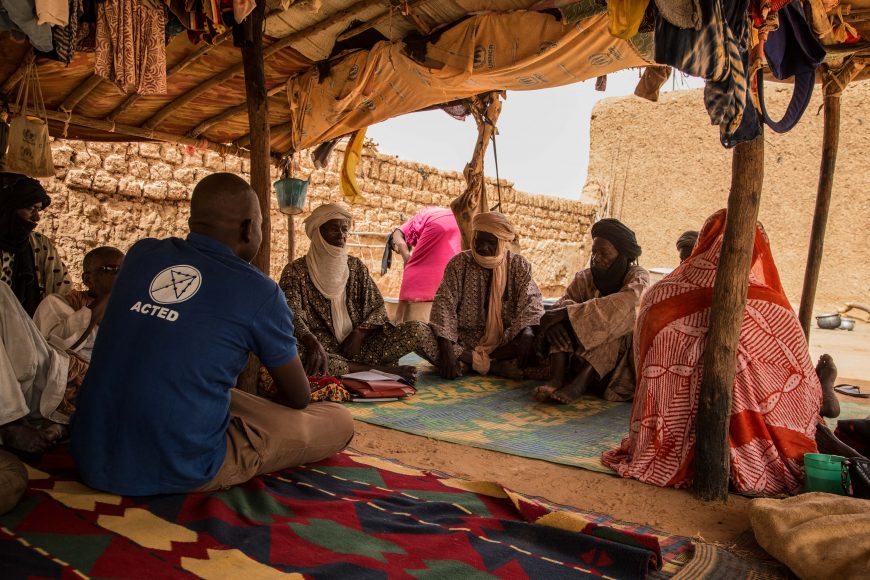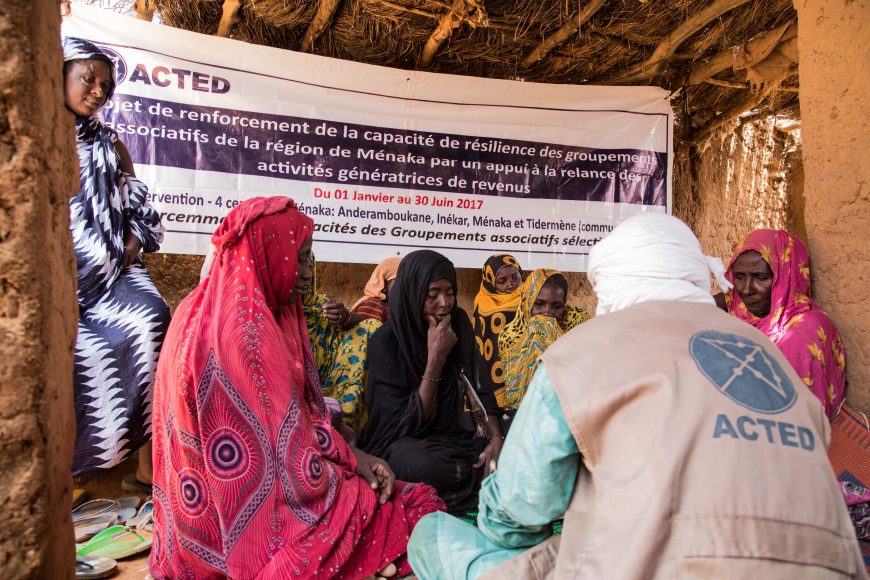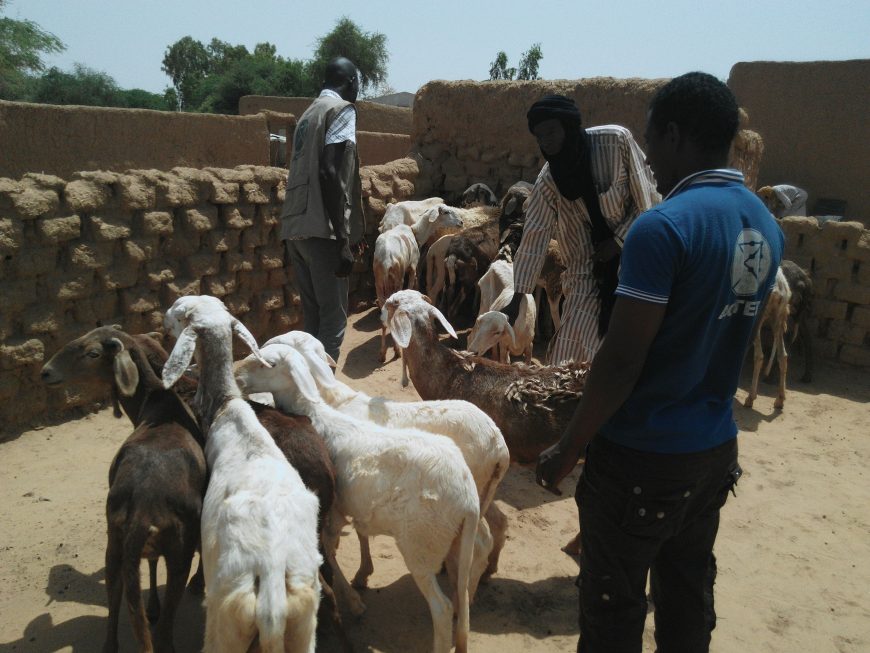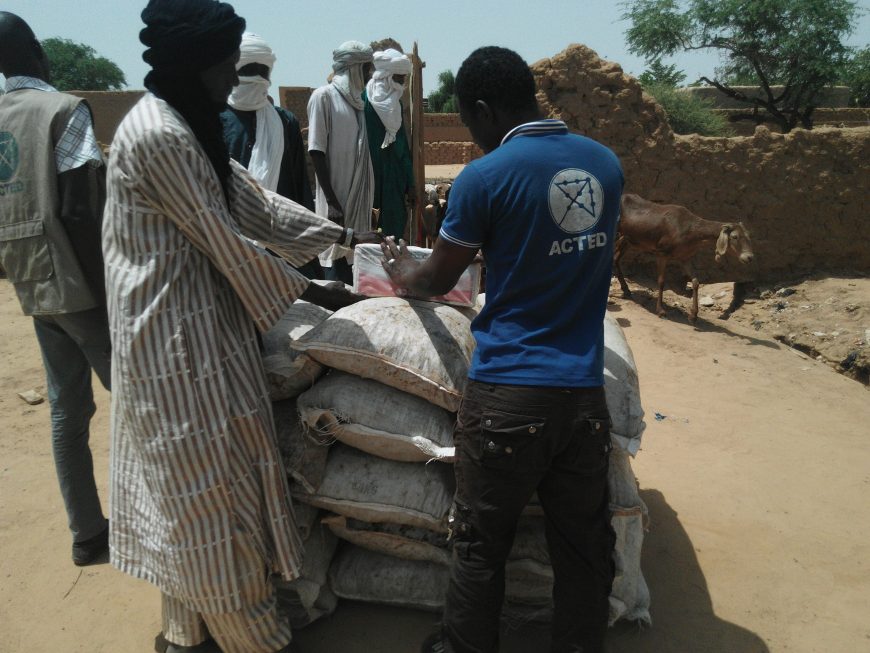
Populations in North Mali suffer from nutritional vulnerabilities resulting from chronical poverty and a limited access to basic services. These vulnerabilities have been further exacerbated by the conflicts affecting the region, thus contributing to the deterioration of their livelihoods and to the reduction of their resilience capacities.
In this context, in 2017 ACTED supported the resilience capacities of 30 associative groups in the Menaka region, providing assistance in relaunching their income generating activities, with financial support from the French Embassy and in collaboration with the Governor’s office of the Menaka region.
An association of returnees, whose president is Assalime, counts among the 30 associative groups which benefited from the project. Its 15 members are al returnees in their home town, Menaka, after their fled to Niger following the conflict in Menaka in December 2013. When they came back to Menaka, they found a city severely affected by the conflict and armed groups, which presence contributed to increasing community and ethnic clashes. This brought the returnees to join their efforts through the creation of the association, in order to reinforce social cohesion among the returned households.

The association works thanks to small donations and membership fees, but still remains weak, thus limiting its capacity of action. It was thus decided to develop a micro project that would help consolidating the structure. A micro project aimed at reinforcing livestock breeding capacities was then submitted to ACTED and the Governor’s office. This topic was chosen as it was the main income generating activity of most of the members before the crisis hit Menaka in 2013. The association was selected to benefit from ACTED’s project, including: strengthening their technical and practical capacity, support in terms of business planning and project development, saving mechanism and material support. This enabled to notably strengthen the association from the financial, administrative and programmatic point of view. With the working capital, members could meet their families’ food needs and keep on supporting social cohesion initiatives in the region.

Assalime tells about this experience: “ACTED trained us in several sectors, including savings management, simplified enterprise management and fattening techniques. We also learned how to make compost out of animal excrements, and sell it to farmers. The training helped us a lot, because it taught us how to develop project in a more sustainable manner. Officials of the regional directorate for animal products and industry supported us in the implementation of the project, by guiding us when designing our business plan. We are very thankful to ACTED for this support. Furthermore, thanks to the French Embassy, we received 20 sheeps, 15 animal feed bags and 20 kilos mineral lick. We are very happy for this support and encourage them to keep on supporting associative groups in the Menaka region and reinforce their resilience.”
